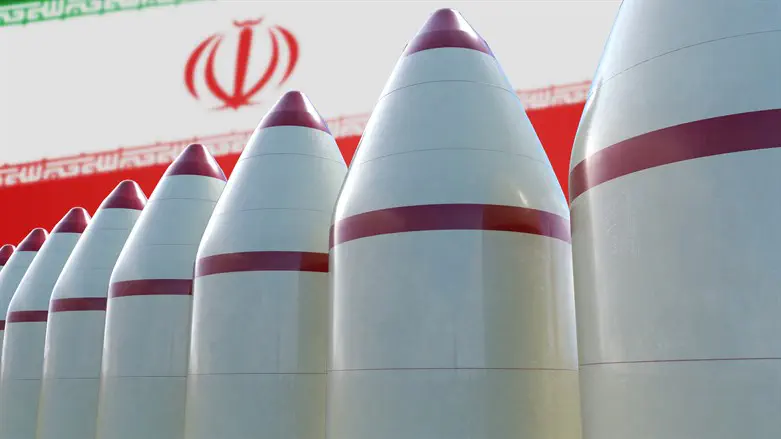
Iran announced on Friday plans to launch a "significant series of new and advanced" centrifuges in response to a resolution adopted on Thursday by the International Atomic Energy Agency (IAEA), which censured Tehran for what it described as a lack of cooperation, AFP reported.
The resolution, introduced by Britain, France, Germany, and the United States, follows a similar measure passed in June. The vote at the IAEA's 35-nation board comes amid heightened tensions over Iran’s nuclear program, with critics fearing Tehran is pursuing the development of a nuclear weapon—a claim Iran has consistently denied.
China, Russia, and Burkina Faso opposed the resolution, which passed with 19 votes in favor, 12 abstentions, and Venezuela abstaining from the vote, according to diplomats.
In a joint statement on Friday, Iran’s Atomic Energy Organization and foreign ministry said, as quoted by AFP, "The head of the Atomic Energy Organization of Iran issued an order to take effective measures, including launching a significant series of new and advanced centrifuges of various types."
The joint Iranian statement noted that technical and safeguards cooperation with the IAEA would continue under existing agreements. "At the same time, technical and safeguards cooperation with the IAEA will continue, as in the past and within the framework of agreements made by Iran."
Behrouz Kamalvandi, spokesperson for Iran’s atomic energy organization, confirmed that the new measures focus on expanding uranium enrichment, saying, "We will substantially increase the enrichment capacity with the utilization of different types of advanced machines."
Thursday’s resolution urged Iran to address longstanding questions in its investigation into uranium particles detected at two undeclared locations. These sites, Varamin and Turquzabad, are suspected to have been part of undeclared nuclear activities.
The board’s resolution called on Iran to provide “technically credible explanations” for the particles and clarify the origin and current location of the nuclear material, stating this would help confirm that “Iran’s nuclear program is exclusively peaceful.”
This latest resolution follows an IAEA report earlier in the week stating that Iran has expanded its stockpile of uranium enriched to near weapons-grade levels. As of October 26, Iran had accumulated 182.3 kilograms of uranium enriched up to 60%, a 17.6-kilogram increase since the agency's August report. Uranium enriched to 60% is just a technical step away from weapons-grade purity of 90%.
The resolution also requires the IAEA to produce a “comprehensive and updated assessment” of Iran’s nuclear activities by spring 2025. Such an assessment could lead to the UN Security Council considering additional sanctions on Iran.
The resolution was submitted even after the head of the UN nuclear watchdog, Rafael Grossi, acknowledged a "concrete step" by Iran to limit its uranium stockpile.
Iran had proposed halting the expansion of its stockpile of uranium enriched to 60% purity—close to the 90% threshold required for weapons-grade material—on the condition that Western powers abandon the efforts to pass the IAEA resolution.
The resolution aims to pressure Iran into negotiating new restrictions on its nuclear program, following the collapse of the 2015 nuclear deal which formally ends in October 2025, even though its terms have been widely breached since the US withdrew in 2018 under then-President Donald Trump.
The Biden administration tried, unsuccessfully, to revive the 2015 deal. The negotiations reached a stalemate in September of 2023, after Iran submitted an unsatisfactory response to a European Union proposal to revive the deal.
(Israel National News' North American desk is keeping you updated until the start of Shabbat in New York. The time posted automatically on all Israel National News articles, however, is Israeli time.)
